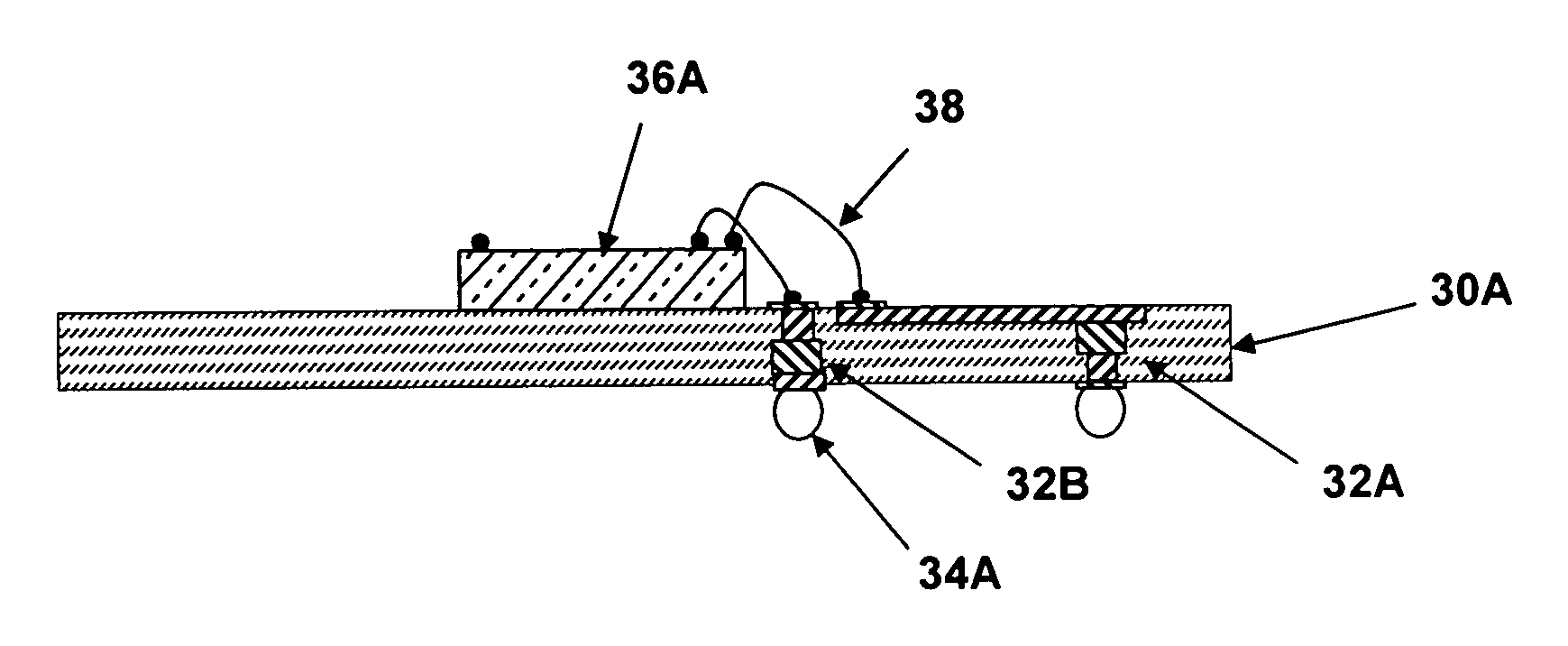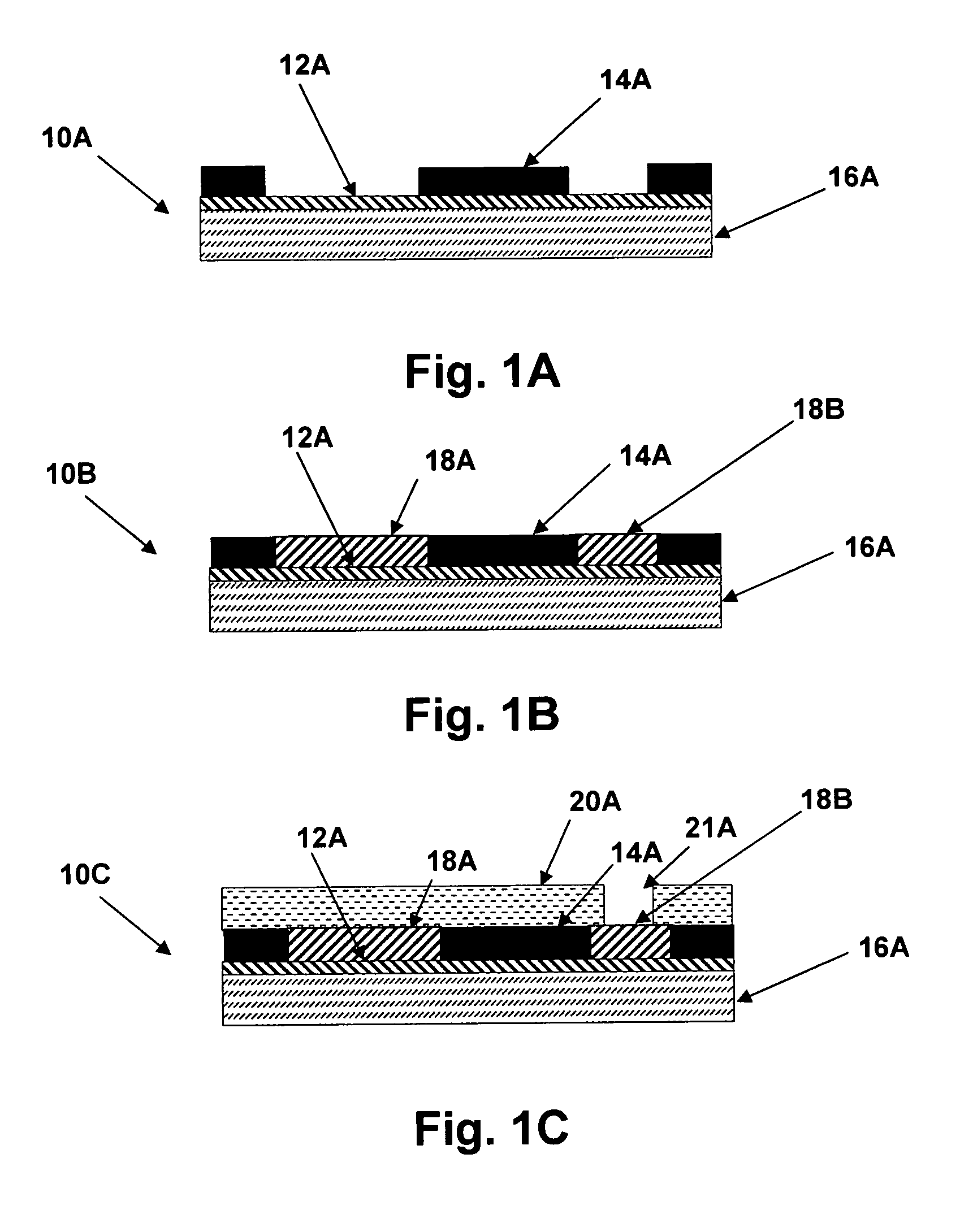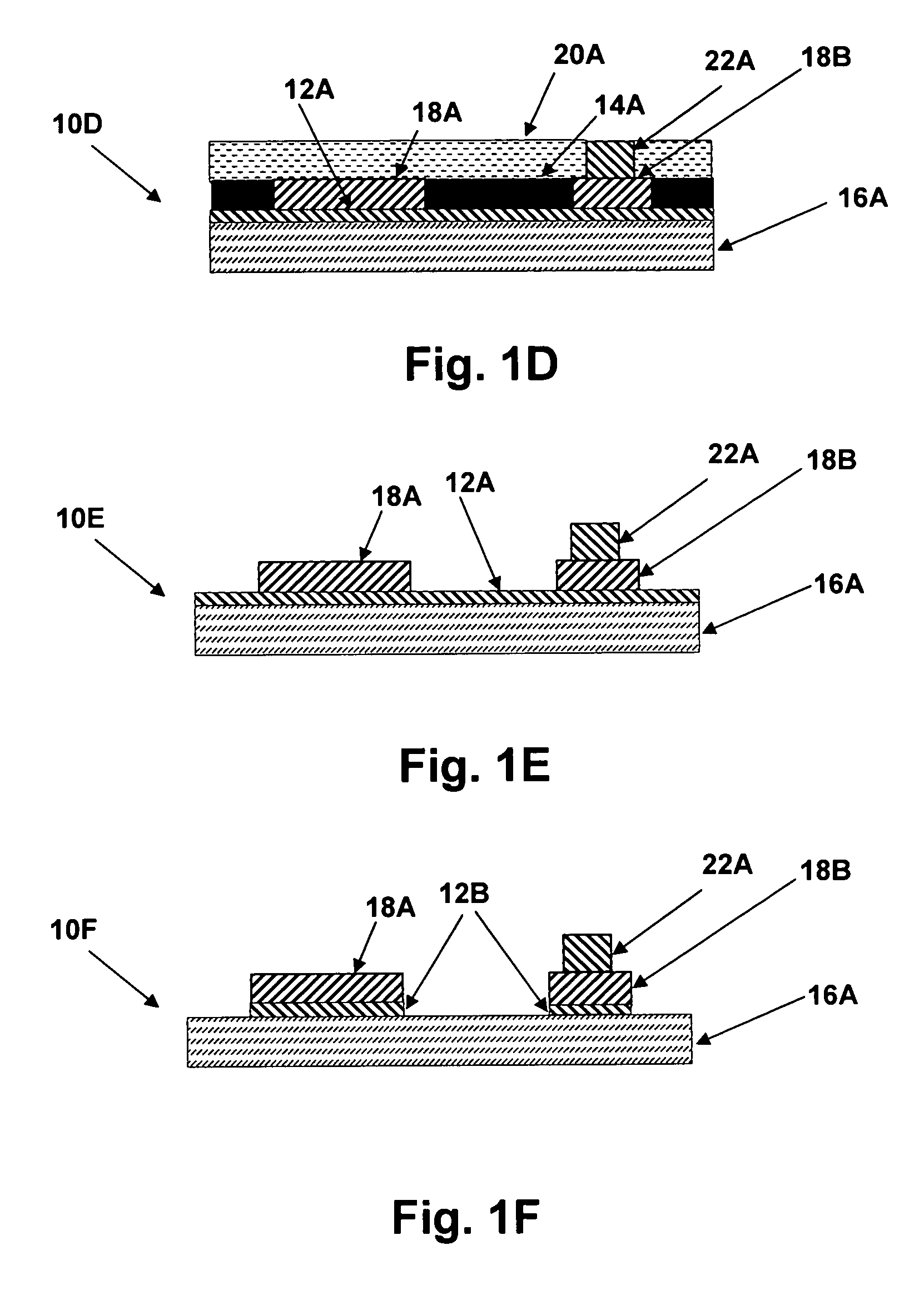Semiconductor package and substrate having multi-level vias
a semiconductor and substrate technology, applied in the field of substrates, can solve the problems of insufficient plate size of vias, inability to properly plate vias, and inability to meet the requirements of increasing the density of terminal arrays, so as to reduce the diameter of vias in semiconductors, maintain the effect of plating aspect ratio, and reduce the formation time of via holes
- Summary
- Abstract
- Description
- Claims
- Application Information
AI Technical Summary
Benefits of technology
Problems solved by technology
Method used
Image
Examples
Embodiment Construction
[0016]Referring now to the figures and in particular to FIGS. 1A–1H, a cross-sectional view of stages of preparation of a substrate in accordance with an embodiment of the present invention is shown.
[0017]FIG. 1A shows a first stage 10A in preparation of a substrate. A metal covered dielectric 16A may be formed by depositing or laminating a metal, generally copper, and planarizing / reducing the metal to yield a very thin metal layer 12A that will be plated over and then un-plated areas will be etched away in subsequent process steps. A resist mask 14A is applied over metal layer 12A, generally by a dry-film photo-masking process. The mask is a negative image of circuit patterns to be generated on substrate 10A in a plate-up process.
[0018]FIG. 1B shows a next state of preparation of substrate stage 10B. Metal, also generally copper, is plated over the exposed regions between plating resist 14A patterns to form circuit patterns 18A and 18B. Next, as shown in FIG. 1C, a second resist ma...
PUM
 Login to View More
Login to View More Abstract
Description
Claims
Application Information
 Login to View More
Login to View More - R&D
- Intellectual Property
- Life Sciences
- Materials
- Tech Scout
- Unparalleled Data Quality
- Higher Quality Content
- 60% Fewer Hallucinations
Browse by: Latest US Patents, China's latest patents, Technical Efficacy Thesaurus, Application Domain, Technology Topic, Popular Technical Reports.
© 2025 PatSnap. All rights reserved.Legal|Privacy policy|Modern Slavery Act Transparency Statement|Sitemap|About US| Contact US: help@patsnap.com



